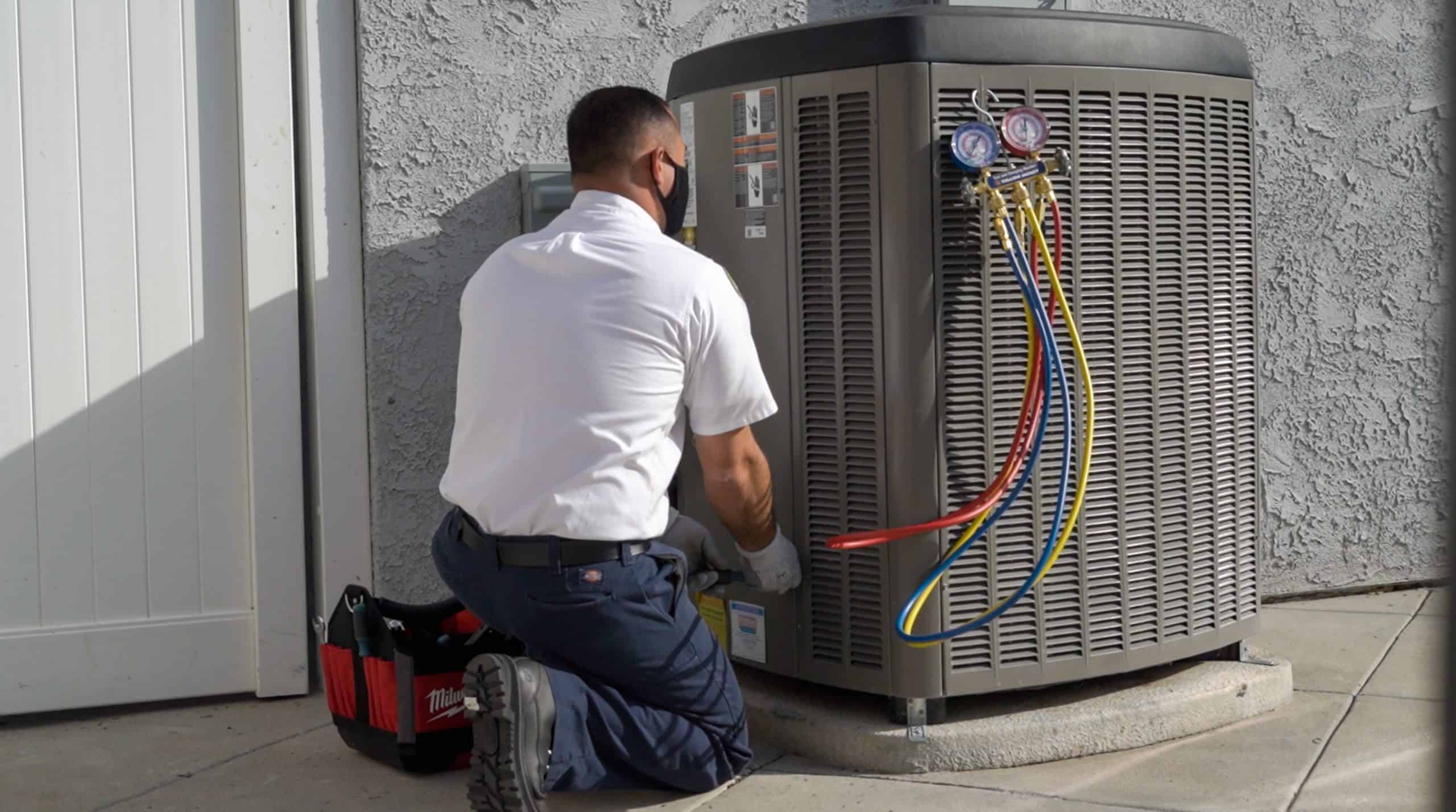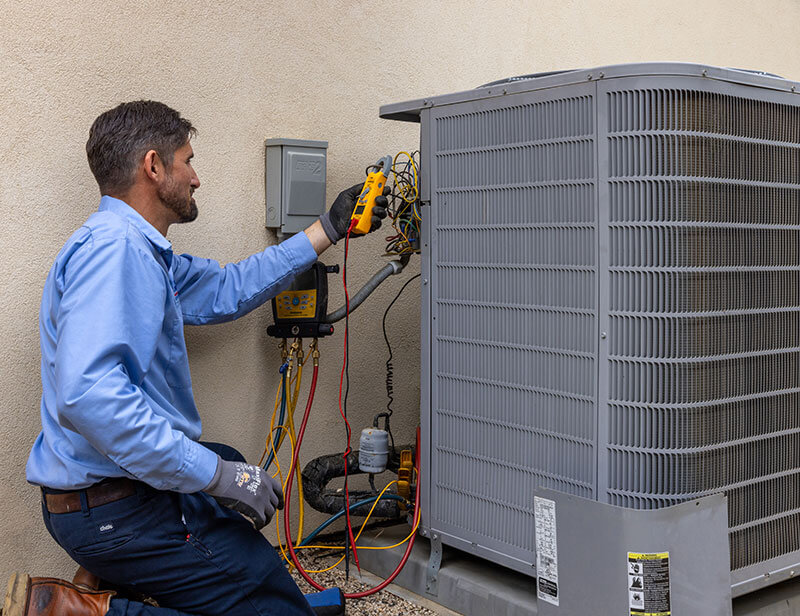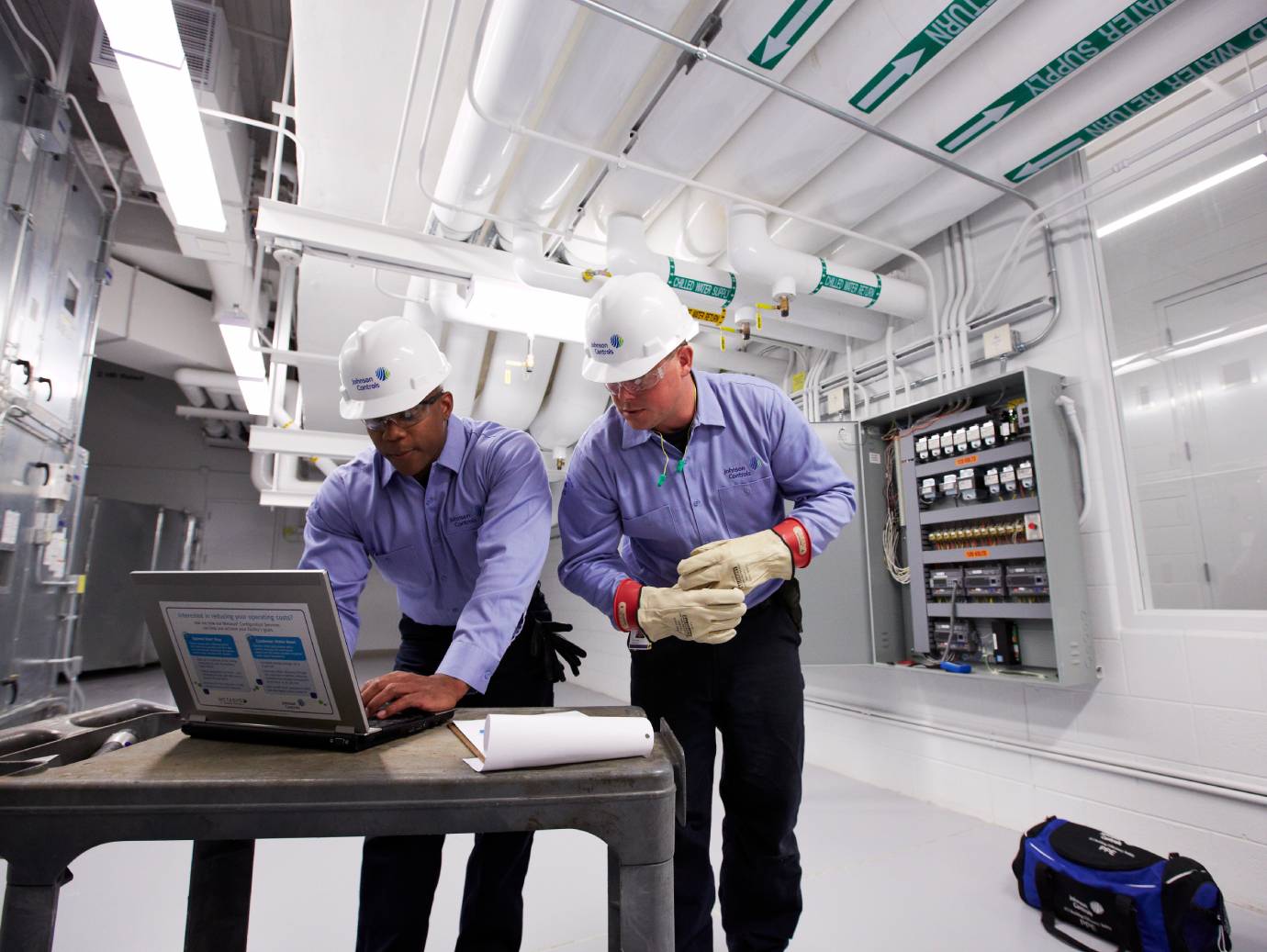Energy-Efficient HVAC Equipments to Save on Energy Expenses
As power prices remain to increase, the significance of energy-efficient heating and cooling systems becomes increasingly evident. These systems not just guarantee considerable financial savings on utility bills however likewise contribute to a much more lasting future by decreasing power consumption. With numerous alternatives offered, including geothermal warm pumps and ductless mini-splits, home owners face a wide range of choices that can improve comfort and air high quality. Nevertheless, understanding the key functions and maintenance requirements is vital to optimizing these benefits. What elements should be prioritized when choosing the best system for your needs?
Benefits of Energy-Efficient Heating And Cooling Solutions
Energy-efficient Heating and cooling systems supply various advantages that extend beyond simple expense financial savings. By consuming less power, these systems add to decrease greenhouse gas exhausts, helping to combat environment change and advertise sustainability.
Additionally, energy-efficient cooling and heating systems usually supply enhanced convenience levels. A lot of these systems feature advanced modern technology that permits better temperature control and boosted air high quality (DMAKS HVAC). This brings about a healthier interior environment, which is particularly vital for people with allergic reactions or respiratory system problems
Moreover, purchasing energy-efficient a/c systems can improve property worth. As even more consumers prioritize energy effectiveness, homes and buildings equipped with these systems may attract greater proposals in the realty market.
Kinds Of Energy-Efficient A/c Options
Just how can home owners and services pick the most suitable energy-efficient HVAC choices for their requirements? The marketplace uses a selection of energy-efficient HVAC systems, each developed to enhance convenience while reducing energy consumption.
One alternative is the variable refrigerant flow (VRF) system, which efficiently controls the temperature in numerous areas within a building. This system adjusts its cooling agent flow to match the preferred temperature level, resulting in considerable energy cost savings.
An additional preferred option is geothermal heatpump, which make use of the earth's steady temperature to warm and awesome areas. By transferring warm to and from the ground, these systems show remarkable effectiveness, especially in moderate climates.
Furthermore, ductless mini-split systems give an energy-efficient option for homes lacking ductwork. These systems permit zone-specific cooling and heating, minimizing power waste in unoccupied areas.
Finally, high-efficiency heating systems and a/c unit, with advanced SEER and AFUE rankings, provide trustworthy climate control while taking in much less power than traditional models. By evaluating these alternatives, home owners and organizations can pick a heating and cooling system tailored to their details requirements and power effectiveness objectives.
Key Attributes to Think About

Following, examine the kind of compressor utilized in the system. DMAKS HVAC. Variable-speed compressors can readjust their result to match the home heating or cooling down demand, leading to boosted comfort and power financial savings compared to single-speed models. In addition, try to find systems furnished with wise thermostats that supply programmable setups and remote gain access to, enabling far better control over power usage
An additional important feature is the system's air filtration capacity. High-efficiency filters can improve interior air high quality and decrease energy consumption by making sure the system runs efficiently. Take into consideration the type of refrigerant utilized; modern systems typically employ environmentally friendly over here refrigerants that have a lower ecological impact.
Last but not least, make sure that the system is compatible with zoning innovation, which allows for customized temperature level control in different areas of your home, boosting convenience while decreasing energy usage.
Tips for Choosing the Right System


Following, think about power performance ratings, specifically the Seasonal Energy Effectiveness Ratio (SEER) for cooling down systems and the Yearly Fuel Utilization Performance (AFUE) for heating systems. Higher rankings suggest greater efficiency, which can cause substantial financial savings on utility expenses gradually.
Furthermore, review the kind of a/c system that ideal suits your lifestyle and spending plan. Options include air conditioning, ductless mini-splits, and heatpump, each with its own collection of benefits and downsides.
Do not forget the significance of correct installment and sizing; an improperly sized system can cause inefficiencies hop over to here and boosted wear. Consult with an expert Heating and cooling professional to acquire expert recommendations tailored to your home's unique needs. This comprehensive method will certainly guarantee that you pick an energy-efficient HVAC system that meets your demands and spending plan effectively.
Upkeep for Ideal Effectiveness
Once the right cooling and heating system remains in place, ongoing maintenance becomes key to making sure optimal effectiveness and durability. A properly maintained system operates much more effectively, resulting in reduced energy consumption and minimized utility bills. Regular assessments and tune-ups need to be scheduled at the very least two times a year-- when before the air conditioning period and once prior to the heating period.

House owners should also be alert regarding checking their heating and cooling system's efficiency. Unusual noises, changing temperature levels, or enhanced power bills can suggest underlying issues that call for prompt attention. By resolving these worries immediately, home owners can avoid expensive fixings and extend the life expectancy of their systems.
Buying a maintenance strategy with a qualified service technician not only enhances performance but also gives satisfaction, knowing that the system is running at its best. DMAKS HVAC. Regular upkeep is therefore essential for maintaining energy efficiency and lowering total operational expenses
Verdict
To conclude, energy-efficient HVAC systems provide a sensible solution for reducing energy bills while improving convenience and air top quality. By including advanced innovations and alternatives such as geothermal warmth pumps and ductless mini-splits, homeowner can accomplish substantial power savings and contribute to ecological sustainability. Cautious consideration of system attributes and continuous maintenance additionally ensures ideal performance, making energy-efficient systems a sensible investment for both economic Related Site and ecological advantages.